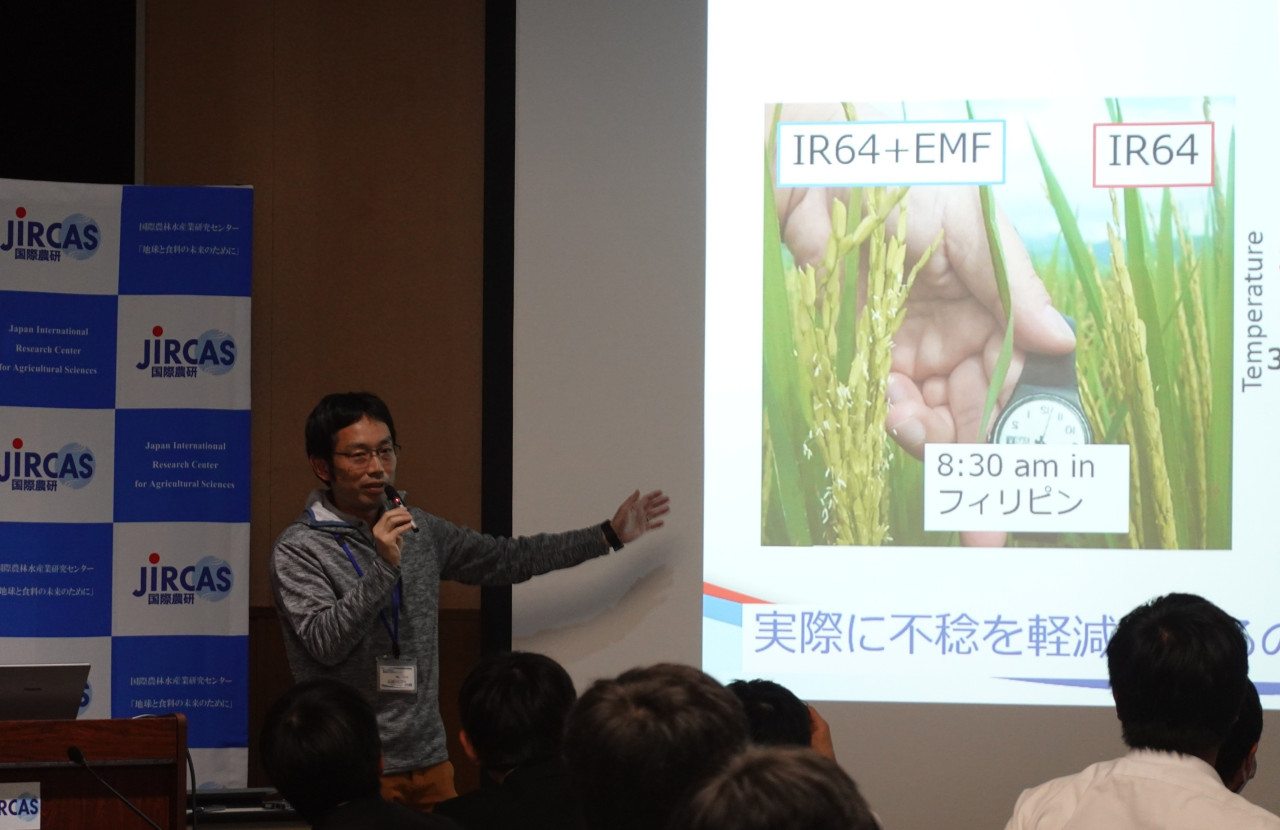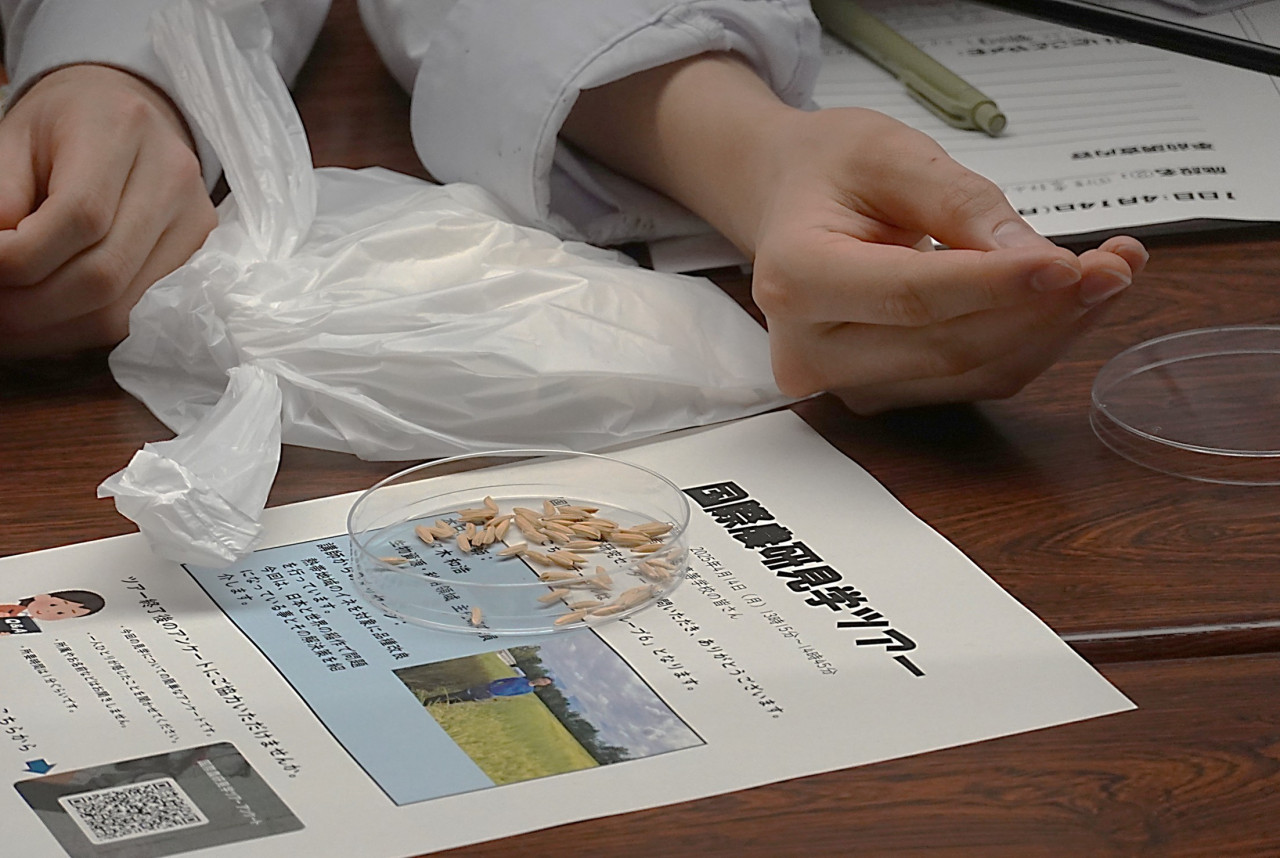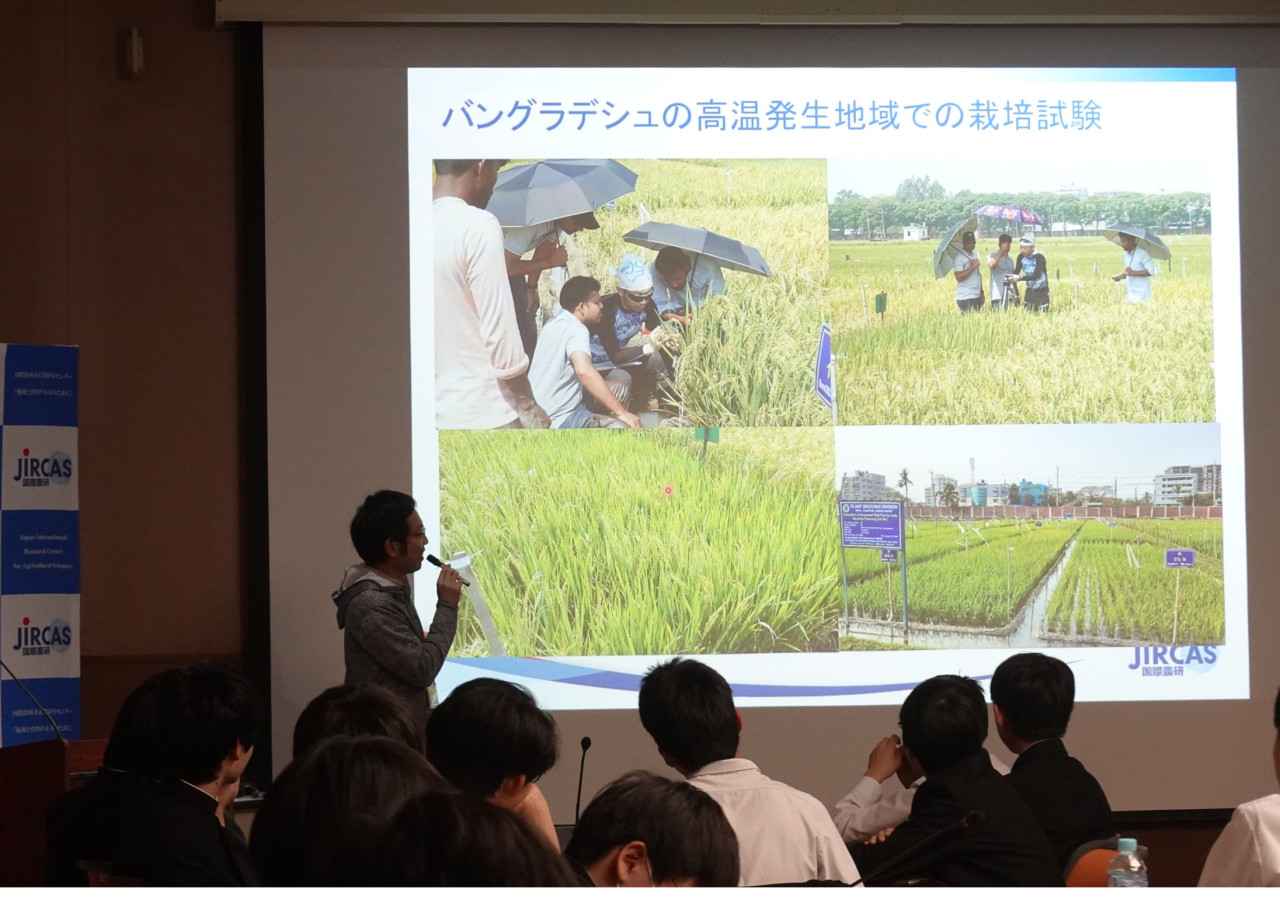On April 14, 2025 (Monday), 44 first-year students and one teacher from Johoku High School in Tokyo visited JIRCAS as part of their “Tsukuba Science Tour."
During the visit, students were introduced to JIRCAS’s research and development activities aimed at solving global food and environmental issues. Together, they explored why Japan plays a vital role in promoting research and development in the agricultural, forestry, and fisheries sectors of developing regions.
Next, Senior Researcher SASAKI Kazuhiro (Biological Resources and Post-harvest Division) explained his work on rice breeding in tropical regions. He highlighted efforts to introduce the trait of early-morning flowering, which helps rice plants avoid heat-induced sterility—a major issue in tropical rice production—by blooming during cooler morning hours. The students also learned about experimental results obtained using a large artificial climate chamber.
To evaluate this newly developed early-morning flowering rice, JIRCAS is conducting field trials in Bangladesh and other locations. The students were shown photos from these trials and heard behind-the-scenes stories from discussions with local researchers, offering a real-time glimpse into ongoing research and development.
The students had the opportunity to touch and compare empty grains affected by heat-induced sterility with normal rice grains, helping them understand the significance of this research. They listened attentively as they learned how this new rice variety could potentially address high-temperature sterility issues not only in tropical regions but also in Japan.
Through this lecture, the students gained a deeper appreciation for food and environmental challenges in developing regions and the importance of agricultural research. Hopefully, this experience will inspire them as they consider their future career paths.
<References>
488. Mismatch in Seasons and Life Cycle Patterns of Plants and Animals Due to Climate Change
572. Using Rice Early-Morning Flowering Trait to Reduce Sterility Due to High Temperature



